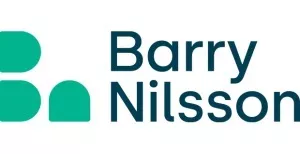- within Litigation and Mediation & Arbitration topic(s)
- with Senior Company Executives, HR and Finance and Tax Executives
- in United States
- with readers working within the Accounting & Consultancy and Law Firm industries
The controversy in this appeal was whether the primary judge should have found that the value of a business included goodwill.
A determinative factor for the primary judge's consideration was that the lease of the premises used by the business was due to expire and was being renewed at a higher rent, which had a material impact on the future maintainable earnings and net asset value of the business.
The evidence
At first instance, the evidence of the single expert valuer was that:
I have attached a revised calculation of the estimated future maintainable earnings, enterprise value and goodwill of the business as at 30 June 2023, adopting an ongoing base rent expense in respect of [AQ Street, Suburb U], of $2,670,312 exclusive of GST per annum, reduced by an annual incentive of $333,789 exclusive of GST over the initial three year lease term.
Under this assumption, the net business assets (as assessed per
Appendix H/6 of approximately $9.79 million) exceed the enterprise
value and there is $Nil goodwill associated with
the business operations as at the valuation date – refer to
the attached Appendices H/4 and H/6. The calculation does
not take into consideration any increases in the price of goods
charged, and gross margin achieved, to offset the increase in rent,
or other costs savings that may be explored by the business, of
which I have no knowledge.
The value of the company, adopting $Nil goodwill is
$33,833,373 as at 30 June 2023...
(emphasis in original)
The appellant submitted to the primary judge at first instance,
that there was no evidence that the increased rent payable by the
business would not be offset by increasing prices or by other costs
savings. On that basis, the appellant sought that the increased
rent not be taken into account in the valuation, such that the
primary judge should find that there was goodwill in the business,
bringing the overall valuation to $39,433,373.
This was rejected at first instance by the primary judge on the
basis that: 'propositions as to these topics were not put to
the [respondent] or to [the intervenor]. The submission of [the
appellant] is absent sufficient evidentiary foundation.' As
such, the primary judge found the value of the business did not
include goodwill.
The appeal
On appeal, the appellant's case hinged upon a finding that the onus was on the respondent to prove that the increased rent would not be passed on to customers or otherwise recovered, and that a Jones v Dunkel inference be drawn on account of his failure to bring that evidence.
It was submitted by the appellant that valuation was tainted by the inclusion of the new rent in isolation from other factors and should not have been relied upon by the primary judge.
Whilst the Full Court acknowledged that the business may increase prices or take other measures to offset the higher rent, the submission was rejected on the basis that there was no evidence before the court about those 'other factors', and, most importantly, the argument was not made before the primary judge at trial.
Accordingly, the appeal was dismissed.
Jones v Dunkel inferences
The Full Court also provided commentary as to the operation of the Jones v Dunkel inference commonly employed in the court - being the principle that, a failure of a party to call evidence may support an inference being drawn that the evidence would not have assisted that party's case.
It must be remembered that the inference cannot be wielded to prove (by omission) facts that do not already have an evidentiary basis in the proceedings. The decision highlights the limitations of the Jones v Dunkel inference, summarised as follows:
- the inference cannot be used to make up any deficiency of evidence or create new evidence,
- the inference can only be drawn where it is open from facts provided by direct evidence in a case, and
- it is a party's decision not to give evidence which contradicts existing evidence that gives rise to an inference being drawn against them.
This case serves as a helpful reminder to litigants and practitioners to carefully consider whether a valuation report is reflective of, and appropriately takes into account, the realities of running a business. Practitioners must take advantage of the opportunity to put questions to expert witnesses pursuant to rule 7.26 of the Federal Circuit and Family Court of Australia (Family Law) Rules 2021, and also in cross-examination, to reality test the evidence that is being relied upon.
O'Cleary & Vukasin [2025] FedCFamC1A 56
The content of this article is intended to provide a general guide to the subject matter. Specialist advice should be sought about your specific circumstances.



